
Jacob Lund - stock.adobe.com
Automated image recognition: How using ‘free’ photos on the internet can lead to lawsuits and fines
Germany-based photographer Marco Verch uses computer scripts to populate the internet with topical images and photographs. People and companies who make mistakes in following the complex licensing terms of his ‘free to share and adapt’ photographs receive threatening ‘legal’ demands
Universities, small family businesses, students and voluntary organisations have been ambushed with demands for huge payments after publishing seemingly free images available through popular photographic sites on the internet.
They are among the victims of an elaborate copyright enforcement scheme that has led a German marathon runner and photographer to seek up to $4.5m in legal penalties from individuals and companies in the US alone, a joint investigation by Computer Weekly and Süddeutsche Zeitung reveals.
Copyright trolling – the enforcement of copyright claims for money through threat and litigation – is nothing new. But Marco Verch has developed the activity in sophisticated ways.
In the US, Verch works with a controversial lawyer, Richard Liebowitz, dubbed a “copyright troll” by a US judge for filing more than 1,120 copyright suits.
Lawsuits filed on behalf of Verch in the US threaten alleged infringers with damages of up to a statutory maximum of $150,000 each.
Many photographers use image search technology, which makes it relatively straightforward to crawl the web to find copies of images that are being used without permission, to legitimately enforce their rights. Automation tools allow these searches to be conducted at a mass scale not previously possible.
But Verch has taken this further by producing huge numbers of images that are protected with licensing conditions. Using his own software and third-party enforcement services, he identifies individuals and organisations that have broken his licensing rules, often unwittingly, leaving them open to be targeted for fines and potentially legal enforcement.
His activities are completely legal, but have resulted in people – some of whom can barely afford to pay – receiving demands for hundreds of euros after making genuine mistakes.
Verch describes himself as a professional photographer and has a portfolio of photographs on the internet.
But he outsources much of the work to create new photographs to low-paid gig workers in Eastern Europe and Latin America, and in other cases uses software to quickly generate images based on trending current events.
Verch’s photographs, typically stock photos, have been uploaded to sites such as Flickr, Verch’s personal photography website, and, until he was banned by the online encyclopedia, Wikipedia.
The vast majority of Verch’s photographs are licensed under an outdated version of the Creative Commons CC-BY licence (CC-BY 2.0), which includes sophisticated attribution requirements that victims have claimed led them into a trap.
If anyone makes a single mistake in licensing one of Verch’s photos – such as leaving out a web link to the original photograph or the author’s webpage, not giving the name of the author sufficient prominence, or failing to mention any edits made to the photograph – the licence terminates automatically.
Verch uses automated software to hunt for those who’ve used his photos without crediting the author in the way required by the licence. He or his agents then send out letters demanding compensation.
Since the start of the Covid-19 pandemic in February, Verch has populated his website with images of face coverings, test tubes and people wearing masks.
Verch told Süddeutsche Zeitung that he has “for sure” sent out payment demands to people who have used his Covid-19 pictures without the correct copyright attribution. If someone needs a Covid picture, they want to earn money themselves, want to write about it and then monetise their website, he says.
“The vast majority of people are using my photos correctly in the way the licence was intended for. There are a small number of people using my images outside of the licence terms I set,” he told Computer Weekly.
“When (or if) I send a letter, either myself, my agent or my team will check the individual case and make an assessment, produce any documentation and reach out to the website or business,” he said.
Verch’s licensing conditions
Marco Verch allows anyone to use the vast majority of his Flickr pictures without payment under the Creative Commons “Attribution 2.0 Generic (CC BY 2.0)” licence.
In summary, the licence suggests that anyone may “share – copy and redistribute the material in any medium or format” as well as “adapt ... build upon the material for any purpose, even commercially”.
On the surface, this means users should merely attribute him as creator and indicate if any changes were made to the original works.
But if you dig deeper into the Attribution 2.0 Generic licence and look at Verch’s requirements on his own website, there are other less obvious requirements:
- Use of exact photo title (with link to individual photo page).
- Inclusion of full author name.
- Link to the specific CC 2.0 licence.
- If edited in any way, such as being resized or cropped, this must be mentioned.
Verch also asks people to include his name with a link to his Plaghunter copyright enforcement business – in an apparent attempt to promote Plaghunter – although there is no requirement to do so in the CC 2.0 licence.
The full licence conditions are contained in a 1,900-word legal code.
Make one mistake and you could end up with an unexpected legal demand.
Verch sometimes launches expensive legal challenges against those who don’t pay.
In one New York court case, Verch sued Columbia University for up to $150,000 in damages for the “unauthorised reproduction” of a photo of a “pair of eyeglasses with a laptop”.
US law entitles statutory damages of up to $150,000 for the willful infringement of each photograph, a threat used within claims filed by Verch’s lawyers to persuade alleged infringers to settle.
Victims say they feel threatened by Verch’s demands. One US legal demand sent by a copyright enforcement agency on behalf of Verch threatened expensive legal action if the recipient did not pay $750 within three weeks.
Verch’s efforts may not be illegal, but his approach has led to people in the US and Europe receiving unexpected bills that in some cases they can barely afford to pay.
Volunteers at Wikipedia banned Verch from the platform in 2018 because they took exception to his images being uploaded “with the purpose of causing harm to re-users”.
A spokesperson from Wikipedia told Computer Weekly: “When someone makes an honest mistake in providing proper attribution, they should receive guidance on how to correct it, not receive a costly legal bill.
“It looks like volunteers removed photos by Marco Verch ... and blocked further photo uploads from his account because of the way the photographer was trying to unfairly enforce the re-use of his images.”
But Verch continues to regularly post his photographs on several Flickr accounts and his own photo galleries.
Computer Weekly gave multiple opportunities to Verch to respond to questions about his activities. He provided mostly limited responses that did not address many of the issues that were raised by the story. Computer Weekly put a further set of questions to Verch before publication to give him a further chance to respond, which he ignored.
He agreed to speak to a reporter from Süddeutsche Zeitung in mid-October.
Have you received unexpected bills for using free creative commons photographs?
If you have received unexpected demands for payments after using photographs advertised as “free to use” on the internet, we would love to hear your story. Please contact us in confidence at [email protected].
The four-hour working week
Marco Verch describes himself both as a “professional photographer and speaker” from Cologne, Germany, and as an entrepreneur and marathon junky, who regularly receives medals for sporting achievement.
Back in 2012, Verch had a relaxed approach to people using his images on Flickr. In a now deleted blog post, he said that rather than issue legal demands for damages, he would email websites that used his Flickr images simply asking them to include a link back to his website.
“If there is no answer, it is not tragic. I am still happy that my photo was used and I will not get the idea to impose any rights by force,” he wrote.
He referred his readers to another article that criticised photographers who demanded hundreds of pounds from people who use their internet images apparently in breach of the licence terms.
Verch’s relaxed approach did not last.
He quit work in 2017 to spend a year testing 12 startup ideas, in a move that allowed him to cut his working hours.
“The four-hour week is possible and that just makes me so infinitely grateful,” Verch said at the time.
He blogged about having time to go swimming without needing to watch the clock and having time to talk to pensioners in the sauna afterwards.
He has travelled to take part in marathons, ironman events and other sports events with fellow “Frontrunner” ambassadors for sporting brand Asics.
It’s a lifestyle many would envy.
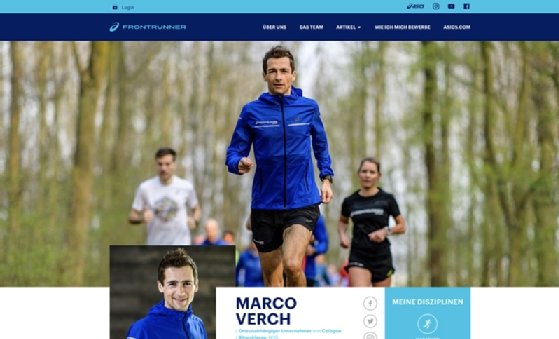
Marco Verch, a “2h39 marathoner”, is an affiliated Asics Germany “Frontrunner” (Picture: Screenshot, Asics.com)
Hurt and pain
Verch uses clauses in a 2004 version of a copyright licence known as Creative Commons (CC) – originally designed to facilitate the free sharing of images online – to claim substantial sums from organisations and individuals that reproduce his photographs without correctly including his licence attribution requirements.
CC licensing first emerged in 2002 and has developed to make licensing fairer both for photographers and users of copyrighted images.
Broadly speaking, CC licences are designed to enable the free distribution of copyrighted works, allowing the rights owners to give permission to others to share, use and build upon their work.
Verch has not disclosed how many invoices he has sent out to alleged copyright infringers.
A simple Google search identified a snapshot of over 290,000 results tied to Verch and Creative Commons excluding results from his own websites and Flickr galleries. If just 1% of these search results contained incorrect attributions, then there would be 2,900 potential claims at the time of the search.
Swiss copyright lawyer Martin Steiger estimates that Verch sends out hundreds of demands each month.
Computer Weekly has documented over 80 named individuals and companies that have received threats from Verch during the course of this investigation.
Victims who have given interviews to Computer Weekly, and others who have published comments in blogs about Verch, said they had received intimidating demands for money from Verch or his agents despite the honest mistakes they had made.
Verch said that he did not know about the personal circumstances of the people he demanded money from.
“Many websites on the internet are operating with little to no personal information about the people or organizations behind the website. Often the only information is an email address and/or postal address,” he said in response to questions from Computer Weekly.
“This would make it extremely difficult, if not impossible, for me (or my team) to know the personal circumstances of individuals behind such sites.”
Verch said that in many cases he had reached amicable settlements. He claimed that in a “large number of cases” he or his agents “waive or heavily reduce” the licence fee “depending on the specific situation” – a point he declined to elaborate on.
Charity forced to close
Patty Knoops is the co-founder of a volunteer foundation that provided training and education for older women in the Netherlands. In December 2019, she received a legal letter from Verch.
Verch took issue with her foundation, Kijk Haar!, using one of his images without full accreditation. He demanded she pay €950, later reduced to €500, within 14 days or face further consequences.
When the fine threatened to wipe out her foundation’s modest finances, Knoops said she became “very depressed” and work “lost all meaning”. The charity decided it could not continue.
“It was terribly sad that we had to pull the plug from the foundation,” she said. “I wonder if Mr Verch realises how many people he has harmed with his shameful actions.”
“I was especially shocked by the threatening language, astonished because I didn’t even know which photo it was … and powerless because we as a foundation have no commercial interest whatsoever and just want to help people,” said Knoops.
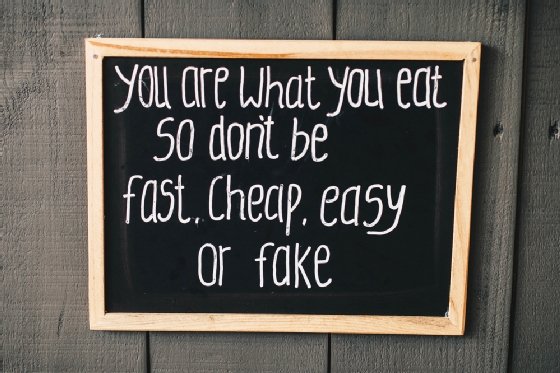
Screengrab of photo used by the Kijk Haar! foundation, which resulted in a €950 bill to Verch (Photo: Motivational sign for healthy eating by Marco Verch under Creative Commons 2.0)
Jenna Davis, founder of the Life In Düsseldorf website, also received an invoice from Verch within days of uploading a photograph from Visual Hunt, a search engine for free photographs.
The demand could not have come at a worse time.
“I actually emailed Marco back and mentioned that I needed more time as I was about to give birth and that what he is doing is illegal,” she said. “His response: ‘All the best for your upcoming birth. You can pay the invoice end of September if this helps.’ This was real. I was being charged and accused of something completely untrue,” she said.
A student who spoke to Computer Weekly on condition of anonymity said Verch targeted him through a third-party collection agency called Pixsy for using a photograph of a footballer.
“The email came at an incredibly difficult time for me,” the recipient said. “I was just starting my second year at uni and my father had passed away in November of that year so I was very fragile, so to have this sudden extra anxiety thrown upon me seriously toyed with my mental and financial state.
“Finding that sort of money for a student is far from easy, and with my dad’s funeral taking place not long before the deadline, I had more pressing matters to deal with than demands of money.”
Comments posted by dozens of others in Europe and North America across web forums, legal advice websites and on social media tell a similar story, with people receiving invoices of between $270 and $750 for their use of photographs they believed were free to use (see box: Victims’ stress and anxiety after receiving legal demands from Verch).
How the scheme works
Verch has flooded the internet with hundreds of thousands of photographs which are easy to come across when searching for “labeled for reuse” pictures on Google image search.
Nearly half a million images posted on at least four separate Flickr accounts (1, 2, 3, 4) include stock images of banknotes and coins, cooking ingredients or well-known tourist sites.
Many of the photos include search-friendly titles, dozens of tags and a selection of “related photos” to help people find Verch’s images on Flickr and Google.
Verch allows anyone to use the vast majority of his pictures for “free” under the Creative Commons “Attribution 2.0 Generic (CC BY 2.0)” licence.
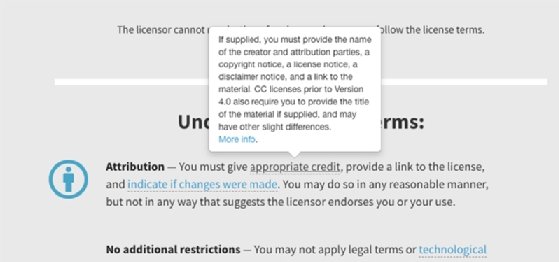
Screenshot of the mouse-click pop-up relating to “appropriate credit” for using CC BY 2.0 photos
Verch gives a ready-to-use example of his licence conditions on his own website. The terms suggest each photo should include links back to three different URLs, Verch’s exact title of the photograph and the author’s full name.
Most people might stop there, but Verch also includes a link to a simplified “human readable” summary of the CC BY 2.0 Creative Commons licence, which includes an additional requirement to list any changes made to the original picture, such as resizing it.
It is easy to overlook further licence conditions contained in a 1,900-word legal code, which is three clicks away from Verch’s homepage.
Make one mistake and you could receive a demand for payment.
Verch sometimes uses points in the legal code which are not found in the short-form version of the licence to underpin some of his claims. For example, in one case, his representative argued that a photo user had violated copyright by not including an image credit with sufficient prominence to meet the full legal code licence requirements.
And while Verch does provide a cut-and-pasteable HTML licence code under each of the photos on his blog, when viewed by Computer Weekly the site served Verch’s blog in German by default, a point which could confuse potential users who are unable to understand the language.
Verch said he used a plug-in service that automatically displays his site in the language of the user’s browser, claiming it “works very well from my testing”.
Computer Weekly has confirmed that Verch uses the plug-in translator, but screen captures of the website recorded in December 2019 and July 2020 and visits to the site by Computer Weekly journalists show that the automatic translation plug-in is not always reliable.
Verch’s ready-to-use example licence conditions and the HTML licence code do not appear beneath any of the photos he posts on Flickr, the platform where many are likely to find his pictures.
“I am [trying] to make it as easy as possible for people to clearly understand how they can use my photos,” Verch told Computer Weekly.
He said Flickr did not allow him to add cut and pasteable licence code beneath his pictures, but that he had provided the code and a link to the CC BY 2.0 information page on his blog.
However, Verch’s website and Flickr pages do not warn people who use his photographs that they are liable to receive legal demands for hundreds of euros in payment if they do not attribute Verch’s copyright notice correctly.
His HTML code requires linking to three websites – instead of the two required by the CC BY 2.0 licence – and makes no mention of a requirement that the photo user specifies if they edited the image in any way.
Verch’s image production line
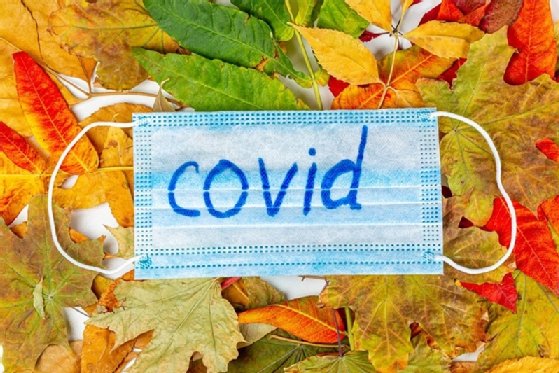
Verch has published a large number of Covid-19 photographs and has sent out payment demands to people who do follow his copyright requirements (Photo: Medical mask with the inscription Covid-19 on dry autumn leaves by Marco Verch under Creative Commons 2.0)
Taking, organising and uploading high-quality stock-style photos in the scale of Verch’s albums would normally be expensive and time-consuming.
Verch began using the Upwork.com website in 2017 to hire low-cost contractors from Eastern Europe and Latin America to populate his online galleries.
Over the course of three years, Verch paid over $110,000 to contractors on Upwork.com to provide him with unique photos of “attractions, food, stock photo, events”, records seen by Computer Weekly on Upwork reveal. He paid $35,956.50 to one Slovenia-based photographer alone. By September 2020, Verch had paid the photographer over $52,000 for more than 8,000 hours of work.
Verch restricted access to his accounts on Upwork after November 2019.
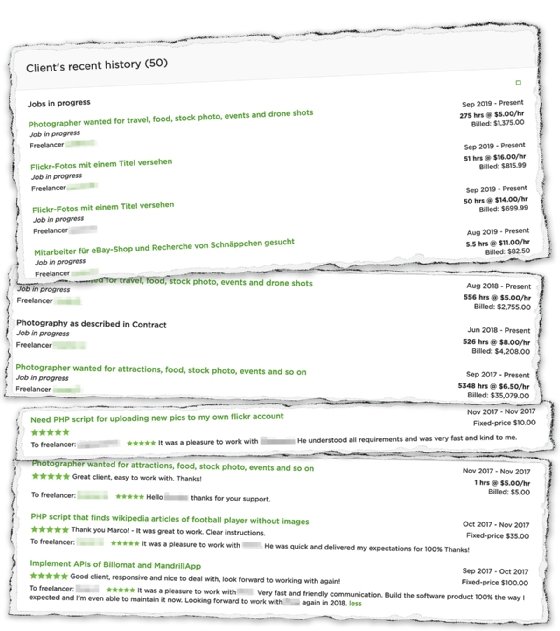
Records show that over the course of three years Marco Verch paid over $110,000 to contractors on Upwork.com to provide him with unique photos of “attractions, food, stock photo, events”
Records show that over the course of three years Marco Verch paid over $110,000 to contractors on Upwork.com to provide him with unique photos of “attractions, food, stock photo, events”
One contract seen by Computer Weekly shows that Verch paid a photographer $3 per image. In return, the photographer gave Verch the right to claim the photograph as his own work, and to pursue claims for compensation and damages from anyone who used the image without a licence.
Photographs like this made their way onto multiple Flickr accounts under Verch’s own name, but with no indication that they had been taken by other people.
A close review of the metadata, known as EXIF data, embedded in several of Verch’s Flickr images reveals the names of the people who actually took Verch’s photographs.
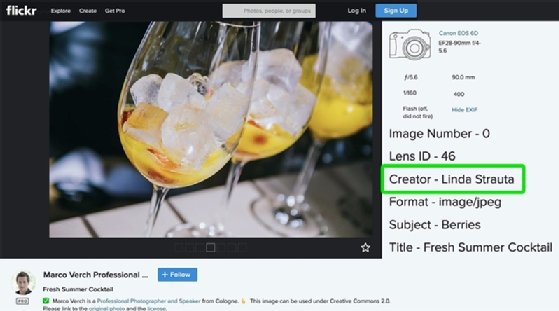
Screenshot shows the true photographer behind one of Verch’s pictures (Photo: Fresh Summer Cocktail by Marco Verch under Creative Commons 2.0, edited by Computer Weekly)
‘The Marco’ Growth Hack
Verch has not explained how he produces his images, but the volume suggests that he invested heavily in automation or employed a large team to create the images for him manually.
The photographer ran a dedicated Flickr account to post images containing phrases in the news.
His now-deleted “Trending Topics 2019” contained 384,622 photos and attracted more than 4.4 million page views.
Many of the images depict the same image of a typewriter accompanied by different popular or newsworthy phrases, such as “Big Ben”, “Toronto FC” or “Baby Shark”.
Another of Verch’s websites promotes images about trending topics for people to use on Twitter. It contained over 460,000 identical images of typewriters with topical phrases posted between January 2019 and May 2020.
Investigation by Computer Weekly has established that Verch or people working for him posted an average of 900 images per day.
A one-hour video, “The Marco” Growth Hack, suggests that Verch uses customised software to generate and batch upload photos mirroring the headlines of trending news stories.
For example, when CNN published a story in August 2017 about Facebook and Instagram encountering service outages, Verch published a digitally altered picture image of Scrabble tiles on Flickr, with a title that copied CNN’s headline exactly.
The image used Scrabble tiles arranged to spell out the words “Facebook Down”. Other Scrabble images in the same collection spell out other phrases on images with titles taken from news headlines including “Florida Execution” and “Challenge Tesla”.
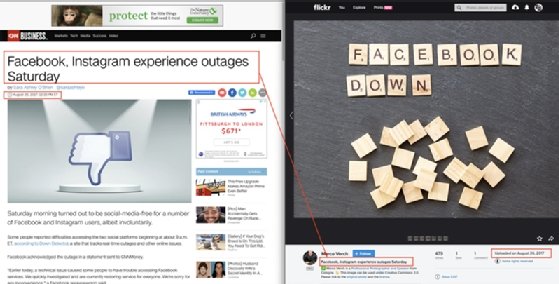
Photo: Facebook, Instagram experience outages Saturday, by Marco Verch under Creative Commons 2.0
Alexander De Ridder, an expert in search engine optimisation, explains in the video how Verch appears to have used a computer “script” to generate these images.
“The script can take some text, create the image, upload to Flickr along with the licence terms, and then Pixsy is automatically going to enforce the licence,” he claims in his video. “That is all it would take to create a library of images that is thousands large and then just wait for the money to come in.”
Verch markets his own Plaghunter copyright enforcement software as a way for “professional and stock photographers to get the royalties they are entitled to” and to “make some extra money”.
He told Computer Weekly that in addition to using web interfaces and other software tools, he has used an Adobe Lightroom plugin, which would allow batch uploading of images.
Kain Jones, CEO of Pixsy, another copyright enforcement agency used by Verch and other photographers, said it was common for photographers to use automation to generate images.
“Many works (especially for designers and illustrators) are created using software and batch processes to generate the final product,” he said.
Court records show that Verch files lawsuits against people who used his “Trending Topics” pictures if they fail to follow his exact attribution requirements.
For example, he threatened to seek compensation and damages for the infringed photograph or “statutory damages of up to $150,000” from financial services company Moodie Bluez Consulting Corp for using one of his Scrabble word images in a blog post. In practice, cases are settled for much less.
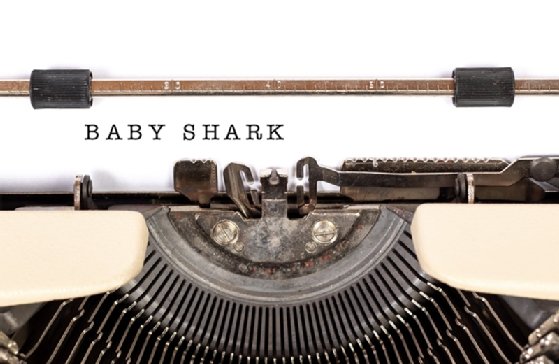
Photo: Baby Shark (Trending Twitter Topics from 10.01.2019), by Marco Verch under Creative Commons 2.0
‘Authentic and trusty’
Verch pays to promote his work, increasing the chances that others will come across his “free-to-use” images while searching the net.
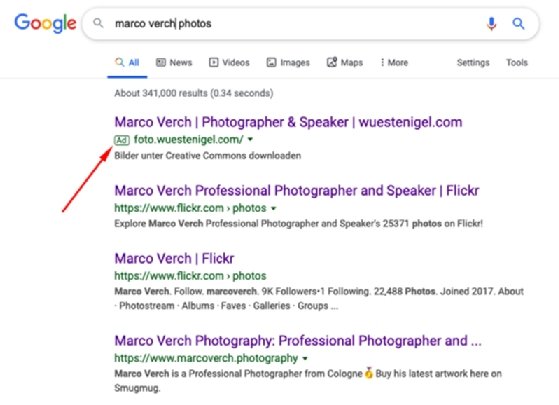
Marco Verch buys adverts on Google to promote his portfolio of Creative Commons images
He buys Google Ads to drive paid traffic to his portfolio of images, describing his pictures as a “Creative Commons” resource in the advertisement.
Verch’s Upwork.com profile shows that he also paid for “trusted” Wikipedia users to spread his images online until Wikipedia banned him.
“I have a lot of pictures in my Wikimedia account and [am] searching for a trusted Wikipedia author that will: Embed my pictures in english Wikipedia,” says the job posting. “Please be active in discussion with other users, use your real account and be authentic and trusty.”
How Marco Verch was banned from Wikipedia
Wikipedia is regularly used by people looking for free-to-use photographs.
Verch was banned from Wikipedia in 2018 after receiving warnings for high-volume uploads to Wikimedia Commons – the media repository used by Wikipedia.
It followed a complaint from a user who wrote that Verch had begun to charge users for minor licence violations. “At least one case is known,” he said.
“Apparently, the user abuses our project as a cost trap by uploading a high number of images without description and categories,” a Wikipedia administrator said.
The images were placed into articles “with the intention of earning money. All legal, but without concordance with the ideals of this project”.
He was banned from the German version of Wikipedia at the same time.
One victim on the German language version of Wikipedia complained about Verch seeking €471.50 for their use of one of Verch’s pictures of tortilla chips and guacamole on their blog. The victim described Verch’s picture as a trap that could catch other people. Verch had threatened legal action if payment was not made by his deadline.
Earning royalties the Verch way
Verch has set up his own company, Plaghunter.com, to automatically identify people who may have broken his strict licensing conditions.
The company offers a web service that uses computer scripts to scour the internet to help subscribers find where their images have been used online.

Marco Verch drinking from a coconut (Photo: Instagram.com/marcoverch.photography)
“Plaghunter helps professional and stock photographers to get the royalties they are entitled to,” Verch said in a German language interview from 2014. “Some users report five-digit amounts per month, which they charge.”
Verch has automated Plaghunter so extensively that he claimed he was able to spend less than four to five hours a week running the service.
He wrote in a 2017 blog that he uses the software services IFTTT, Dropbox and Mac-Automator to automatically file and print out invoices.
“It’s even better than the noise of the coffee machine when the printer suddenly ejects some outgoing invoices after getting up,” he wrote.
After nearly five years in business, Verch added new features to Plaghunter in 2018, making it possible to “submit copyright infringements with a few clicks”.
The same year, German-language blogs began emerging which reported that Verch was sending “invoices” for the unauthorised use of CC photos to people throughout the country.
One article on the Tarnkappe.info website resulted in 89 comments, many from people who had received unexpected invoices on behalf of Verch.
Lawyer Markus Kompa told Computer Weekly that he represented almost 100 clients in 2019 who have received legal threats from the German athlete.
“Most cases of CC-trolling of this year [2019] are related to clients who got such demands by Marco Verch,” said Kompa. “I didn’t really count but it is fair to say one per week minimum.”
The German courts are now making it more difficult for Verch and other photographers to claim damages for photographs they distribute on free-to-use licences.
Kompa has been successful at limiting Verch’s ability to collect cash to a maximum €100 for each picture.
He said that Verch and other people who make money from billing people for failing to license images correctly have not been able to show they make any serious income from selling photographs.
“All of these people, especially Mr. Verch, have not offered the slightest evidence that they ever earn more than very, very occasional money with their pictures in normal sales competition,” he told Süddeutsche Zeitung.
Kompa said that Verch rarely puts up a fight when he rejects Verch’s financial claims against his clients. “That’s usually the end of the matter.”
German courts limit claims from free photos
The Cologne Higher Regional Court has dismissed copyright lawsuits after deciding that photographs made available free of charge on the internet have no financial value. As a result, collecting cash in Germany became more difficult.
In another case in July 2020, for example, a court in Aschaffenburg, Bavaria, ordered Verch to pay costs and refused his demand for €574 from a person that had failed to credit Verch by name in one of his photos.
The court also found that Verch had made no mention of the CC BY 2.0 licence on his website, and that it was only accessible by following a link.
As Verch offered his photographs available free of charge for commercial and non-commercial purposes, the court concluded “there is no apparent damage to assets”.
The Bavarian court recognised that Verch had stated that he distributed selected photographs through the Adobe library.
Even so, that was not enough to convince the court that Verch had suffered any financial damage when someone misattributed one of his Creative Commons images.
Going international
Verch appears to have internationalised his operation in 2018.
Reports emerged on websites like JustAnswer.co.uk and Extortion Letter Info about Verch’s use of a licence fee collection agency called Pixsy to send demands for payment and threats of court action.
Pixsy manages and sends payment demands on Verch’s behalf. Those targeted receive an emailed “legal escalation notice” which includes an attached “Unauthorised use of photograph” complaint and an automatically generated “Evidence Report” [Temporarily unavailable].
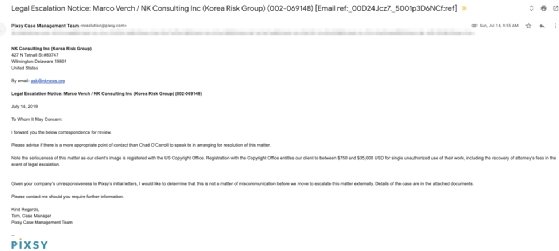
Example of “escalation notice” received by this journalist, which prompted further investigation
Example of “escalation notice” received by this journalist, which prompted further investigation after Verch denied the possibility of non-monetary or discounted resolution despite a direct communication effort outside of Pixsy.
In the US, Pixsy typically demands a minimum of $750 to resolve what it describes as “unlicensed use”. The amount demanded depends on the jurisdiction of the target. It threatens to refer cases to one of Pixsy’s legal partners in the receiver’s local area “to secure the highest recoverable [amount] for copyright infringement” if people do not settle the claim quickly.
The copyright enforcement company describes Verch as a “respected photographer who takes significant steps to ensure that his imagery and its value is protected”.
“Verch is a big source of business for Pixsy,” said one legal expert working on an active case against Verch, on condition of anonymity.
In the past, Pixsy sent those it targets with lists of persons who had already paid Verch’s fines.
“The last email request from Pixsy had an attachment for ALL of the cases that Pixsy had on behalf of Marco Verch,” one recipient said at the Extortion Letter Info website.
“According to this, he has collected >$300K worth of licensing settlements with Pixsy,” the message continued, “including providing multiple licences for the image he is pursuing me for.”
Verch said he had “no comment” about the existence of such a licensing settlement list, while Pixsy would neither confirm nor deny its existence of the $300,000 list.
“Without seeing the alleged emails or documents, I would not be able to comment or even verify they are in fact, legitimate or unaltered documents,” said Pixsy CEO Kain Jones.
Pixsy claims in its letters that “Unlicensed usage takes power away from photographers and significantly devalues their work. This misuse severely impacts the market value of Mr. Verch’s work, and has made it more difficult for him to license imagery at his high standard rates”.
But there is little publicly available evidence Verch ever sold substantial numbers of his photos commercially.
None of his works can be found on platforms like iStockPhoto, Shutterstock or Depositphotos, where stock-style material costs between $4.90 and $11 per photo. Other photo libraries such as the Mary Evans picture library supply photographs for between £40 and £150.
Instead, Verch offers a grand total of seven photos for sale at his SmugMug profile, for much higher rates: $882.36 each. At the time of writing, he had also made 103 generic stock images available on the Adobe Stock photo library, a commercial subscription service.

Screenshot: Marco Verch offers seven photographs for sale for $882.36 each on his SmugMug album. He declined to say how many photographs he had sold. (Credit: Aerial Photography: Seychelles, featuring thumbnails of copyright photos by Marco Verch)
Verch claimed that he had sold and licensed photographs from his websites for a number of years.
He would not say during his interview how many photographs he had sold commercially and how much of his income came from sending out enforcement notices.
“Unfortunately, I do not know the exact ratio,” he said.
Instead, he mentioned a study by the City of Hamburg featuring two aerial photos of the city that he had taken, as proof that he sold photos commercially.
Going legal
Verch registers images in large batches with the US Copyright Office, allowing him to sue infringers in the US for significantly higher sums than he could using Pixsy or Plaghunter.
Registering images is considered best practice for photographers and is necessary in US law for photographers to claim statutory damages in the event copyright is breached.
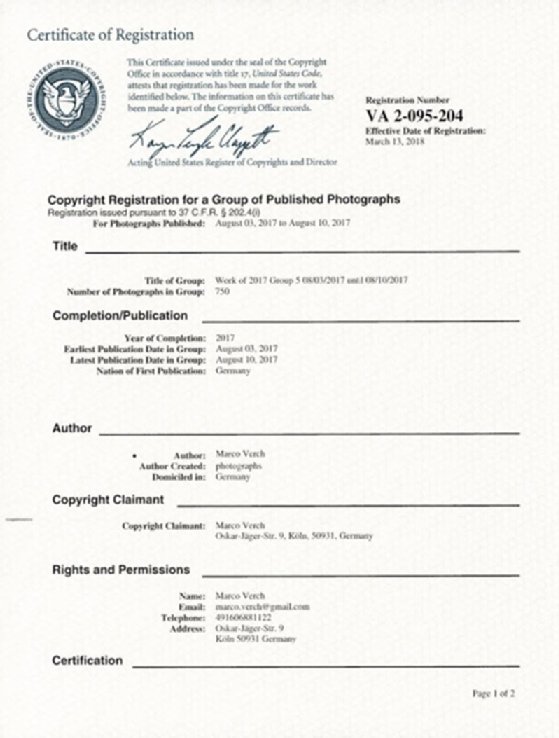
Marco Verch registers his images with the US Copyright Office
Normally working with cont roversial lawyer Richard Liebowitz – whom US district judge Denise Cote in October 2018 dubbed a “copyright troll” for filing over 1,120 copyright suits– Verch regularly pursues users of his photos with six-figure claims.
In a 2019 memorandum opinion and order, a judge in the Southern District of New York wrote: “Richard Liebowitz is a known copyright ‘troll’, filing over 500 cases in this district alone in the past twenty-four months.”
The US courts have defined a copyright troll in legal rulings. According to one court decision, “A copyright troll plays a numbers game in which it targets hundreds or thousands of defendants seeking quick settlements priced just low enough that it is less expensive for the defendant to pay the troll rather than defend the claim.”
Data from PacerMonitor.com, which tracks federal court cases, showed 40 cases directly linked to Verch, with 38 represented by Liebowitz, when viewed by Computer Weekly.
And the vast majority of those sought either compensation tied to the infringement of the photo or the full $150,000 possible under US law. In practice, most are settled for less.
Liebowitz sought exactly that in a lawsuit against Columbia University, filed in September 2019, for the “willful, intentional, and purposeful” use of one of Verch’s photos – in a tweet.
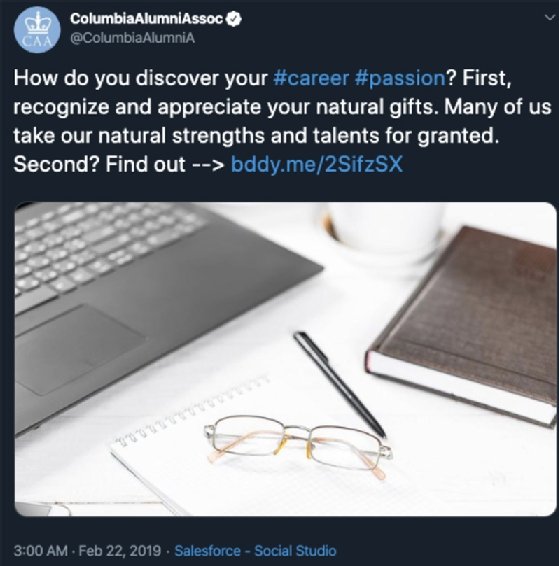
Columbia University faced a legal demand of up to $150,000 for using one of Marco Verch’s images in a tweet (Photo: Business background concept, by Marco Verch under Creative Commons 2.0)
“Columbia University did not license the Photograph from Plaintiff for its article, nor did Columbia University have Plaintiff’s permission or consent to publish the Photograph on its Website,” the claim reads.
That’s because the tweet didn’t attribute Verch as creator – often a technically impossible feat given the level of Verch’s attribution requirements – in the 280 characters supported by Twitter.
He claimed that in the majority of cases people don’t post his images on Twitter, they link to a webpage containing the photograph and the copyright notice.
Verch also offers individual licence agreements on his website. “This can be useful, for example, if for technical reasons you cannot or do not want to link to the original image or the conditions,” the site states.
He said that he had seen people include the text “Photo Credit: Marco Verch” in tweets “to comply”, but did not make it clear whether that would satisfy his licensing conditions.
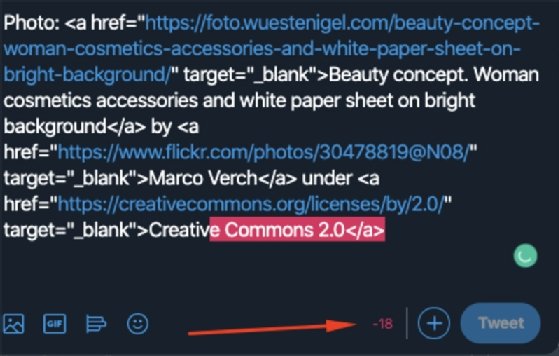
The credit terms suggested on Marco Verch’s Foto.Wuestenigel website often don’t fit within the maximum length of a tweet
The same threats of damages have also been sought in other recent Marco Verch cases, for example, versus The Institute for New Economic Thinking, Cox Media Group and Sea Breeze Syrups.
In Europe, however, there are signs that courts are becoming less sympathetic. In May 2020, the Commercial Court in Zurich overturned Verch’s claims for damages of €6,127 against a media company he claimed had used his photographs without complying with his licensing terms (see box: Swiss court finds that Marco Verch’s free photos have zero financial value).
The court found, in effect, that because the photographs were not sold, then any damages Verch was entitled to would be zero.
Verch told Süddeutsche Zeitung that his photographs have value both because they offer Verch a “big advertising effect” and they could be sold commercially.
If the photographs were worthless then the media company would not have made a counteroffer to settle, he said.
Verch suggested that he might have forgotten to send the invoice over to the court.
There were courts, he claimed, that had awarded him compensation.
Swiss court finds that Marco Verch’s free photos have zero financial value
The owner of a media company in Zurich, Switzerland, set a legal precedent in May 2020 after the business successfully took legal action against Verch.
After a two-and-a-half-year legal dispute, the Commercial Court in Zurich overturned Verch’s claims for damages of €6,127 against the business, and ordered him to pay legal costs.
The company claimed that Verch’s business model was to systematically offer free licences for his images in order to issue high claims against users “in the event of the slightest (or no) licence infringement”.
The court found that Verch had made photographs available free of charge for both commercial and non-commercial use on Flickr under a Creative Commons licence.
There was no concrete evidence that Verch had licensed photographs any other way than through CC 2.0 licences, and therefore no evidence they had an economic value, it said.
The case is important because, like earlier cases in Germany, it implies that free-to-use photographs have zero financial value when owners claim for damages.
The court found that Verch could not have suffered any damage if the company had failed to include links requested by Verch in his licence conditions, since the links only led to further free photographs.
Verch did not specify what licence conditions had been infringed, and the company was unable to see what breaches it was legally accused of. Verch had been unable to prove copyright infringement, the court said.
The court record shows that his legal representatives took a tough line with the media company caught up in the dispute, offering an “amicable” settlement only if the company agreed to pay over €4,000.
4 January 2018
Verch issued an invoice to the company owner for €5,130 of licence fees for the use of eight of his images. The company had named the source of the pictures as Flickr, named the author and the licence, and had mistakenly named the source of one of the pictures as Picasa.
Verch argued that the company should have mentioned the author of the photographs, linked to the original image and linked to the Creative Commons licence.
17 January 2018
The company apologised to Verch and said it had removed the images from the web but saw no reason to pay the licence fee demanded by Verch.
24 January 2018
Verch’s legal representatives claimed damages of €4,485, made up of an alleged “user fee” for the 10 pictures and +100% “surcharge for failing to mention the author” on one picture, and reimbursement for legal expenses of €1,642.40.
6 February 2018
The company rejected Verch’s claims for financial damages on the grounds that the photographs had no commercial value.
21 February 2018
Verch’s legal representative made an email offer to settle the case “amicably” for a lump sum payment of €5,000, if paid within a deadline of just over three weeks.
12 March 2018
The media company did not accept Verch’s right to claim compensation but offered to settle the case for a lump sum payment of €250.
23 April 2018
Verch’s legal representative now offered to settle for €4,500, but threatened to issue legal proceedings if the bill was not paid in a month.
23 April 2018
The media company said it could not pay without knowing what the payment was for or what legal violations it was accused of.
8 May 2018
Verch’s legal representative claimed that the infringing pictures did not link to the CC 2.0 licence or to Verch’s original image.
14 May 2018
The company said it was not prepared to pay damages of several thousand euros over the alleged missing links on its photo credits. It offered a settlement payment of €1,000.
1 June 2018
Verch’s legal representative rejected the proposed settlement and offered to settle for €4,250.
12 June 2018
The company took legal action against Verch, challenging the validity of Verch’s claim for damages for breach of his licensing terms.
6 November 2018
The company informed the court that it had been unable to reach a settlement with Verch.
8 February 2019
The company again informed the court that it had been unable to reach a settlement with Verch.
26 March 2020
The court declared it would rule on the dispute after both sides waived their right to full trial.
6 May 2020
The Commercial Court of the Canton of Zurich rejected Verch’s claim for damages and ordered him to pay costs.
Verch agreed to an interview with a journalist from Süddeutsche Zeitung.
They met in the WeWork building in Friesenplatz, Cologne, a shared workspace.
Verch expressed little sympathy for people who have received unexpected invoices after making mistakes with the licence.
“Whether he pays €200 in advance, uses the picture, or first uses the picture and then the €200, the balance is the same,” he said.
The evidence gathered by Computer Weekly, though, shows that Verch’s victims receive demands for payment that are frequently higher than €200, and can often be as high as $750 or more.
Verch is adamant that sending out invoices for his photographs is not his business model, despite offering Plaghunter as a service to identify and seek payments from copyright infringers.
He said he has a lot of income streams, normally licensed images, his Plaghunter service and reselling items.
He said he sees his role as partly to educate people in Creative Commons, he told Süddeutsche Zeitung.
Many bosses ask their trainees or junior employees to source pictures, and they turn to Google, said Verch, arguing that he tries to fill gaps in their knowledge.
Animal farm
Verch publicly announced in summer 2020 that he was a supporting member of Wikimedia and to make regular donations to Creative Commons, along with other good causes.
He added a page to his website, between 21 June 2020 and 10 July 2020 listing a range of charitable causes he supported, according to records on the internet archive.
He lists himself as a member of the German Animal Welfare Association, the animal rights organisation Peta, an educational charity, the World Wide Fund for Nature and Doctors Without Borders.
He informs people about a donation he made on the crowdfunding site Startnext he made to a farm that allows young people to learn about animals.
And he has posted a certificate on his website showing his sponsorship of “Trudi the Pig”, one of the animals kept by an upmarket vegan animal-friendly hotel, where Verch stayed in August 2020.
As for charities, like Patty Knoops’ volunteer foundation, Verch said in mid-October 2020 that he either no longer writes to such institutions or only briefly draws their attention to the mistake.
He said he did not know every case where a non-profit organisation had received one of his payment demands. “They are probably also much older cases,” he said, adding that it is not always possible to see who is behind an organisation.
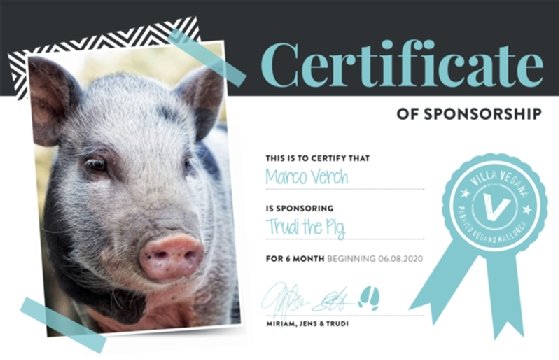
Marco Verch has begun publicising his contributions to animal welfare and other charities, including a certificate for sponsoring Trudi the pig at the Villa Vegan vegetarian resort during a holiday in August 2020 (Source: Marco Verch and Villa Vegan)
The future: Pixsy, Flickr, Wikimedia and Creative Commons
In practice, Verch would not make so much money from copyright infringers were it not for the now 16 years old CC 2.0 licence, known as Attribution 2.0.
“The mission of CC is to enable and promote sharing,” said Diane Peters, general counsel for Creative Commons, the US not-for-profit which created the CC licences to “give every person and organization in the world a free, simple and standardized way to grant copyright permissions”.
And while it’s important for licensees to respect the terms of the licence, Peters said “we don’t like...our tools being used opportunistically” where “litigation is threatened as the first course of action”.
As an organisation valuing “openness and generosity”, rights owners and publishers should avoid “AI-based enforcement services” and instead “build direct relationships and work together to resolve disputes amicably whenever possible”.
As the Creative Commons organisation has evolved, so too have its licences, in ways that would mostly prevent Verch’s scheme from operating.
CC 4.0 requires a 30-day period to resolve attribution problems before fines or court cases can be pursued.
But Pixsy’s CEO, Kain Jones, declined to say why the organisation, which said it works with over 80,000 photographers, artists, brands and agencies, does not follow the best practices laid down in CC 4.0.
“Pixsy represents thousands of photographers, agencies and creatives around the world to assist them with monitoring where and how their images are used online,” said Jones.
“When our clients detect their images being used without permission or outside of a valid licence, we empower them to resolve the matter easily and professionally.”
It was common in the industry, said Jones, for photo platforms or agencies to hire photographers or artists to create images who assign the rights back to the commissioning organisation.
“Mr Verch, like all creators, has legal rights for the content he creates and owns. It is their legal right to set out the usage terms and enforce those rights when they are misused or infringed,” he said.
Clients like Verch must submit claims on a “case-by-case basis”, Jones said, adding that his firm “partners with leading IP/copyright law firms”.
“While our image monitoring solution uses computerized technology, our copyright enforcement work relies on human beings to handle each matter. Each copyright case we work on is individually reviewed by our customer and only submitted to us if it’s a clear commercial infringement of their copyrights,” he said.
Flickr did not respond to questions from Computer Weekly.
Meanwhile, there is nothing to stop Verch sending threats and invoices to people who fail to follow his licence conditions to the letter.
Flickr and other photo-sharing sites could stamp out this sort of scheme in the future by updating their photo-sharing licence to CC 4.0 for all new uploads.
Failing that, global copyright rules will need to change to reflect the true intention of the licence: to facilitate free sharing.
Knoops, the lady who shut down her voluntary foundation, said Verch was causing more harm than he realised. “My message would be that his methods will cause many [more] victims, more than he can imagine,” she said.
“Good people who put in their heart and soul to help others are devastated by the activities of Mr Verch, who is making easy money with … Plaghunter. It’s a good thing that copyright exists, but this is not how this law was meant to be!”
Update 18 November - After publication of this article Verch disabled public access to his own website containing his portfolio of photographs, his 'Twitter Trends' photographs website, along with his LinkedIn, Facebook, Twitter profiles and his YouTube account.
Victims’ stress and anxiety after receiving legal demands from Marco Verch
Verch reduces fee for non-profit school
G runs a non-profit school and used one of Verch’s images without properly referencing it. “I just created the school … and was not very aware of the copyrights; I just knew that I should use a picture free for commercial use,” said G. After receiving a demand for payment, G took the image down straight away and explained the situation to Verch, who offered the school a discount from its original bill of more than €200. The school had yet to make any income. G did not hear from Verch after his last contact.
Travel company deleted 10,000 social media posts
Sal has been targeted twice by Verch. She used one of Verch’s images on her travel website in 2018 and misreferenced him, resulting in a $250 fine. She said the experience caused her such anxiety that the company started deleting 10,000 earlier tweets and her Facebook and LinkedIn posts. She was again targeted by Verch in March 2019 with another $250 fine that she paid for fear of legal repercussions.
Fine was ‘disingenuous’
Cody Gough received a demand for $750 from Verch’s copyright enforcement agency Pixsy, despite including the required attribution conditions in her photograph. “I always provide attribution – I put it in the description and the metadata of the image, I say this image is used via Flickr, via Creative Commons, and I put a link to the creator and to the specific image so people can go find that source,” he said in a telephone interview. Gough said the screenshots sent by Pixsy as evidence were from an automatically generated WordPress file location page, which did not include the credits she had added to the image. “It appears that the screenshots he sent, he basically just copied the URL and opened it up in another page or found some way to display it on the website without attribution even though it was all there in the metadata,” she said. “This is clearly just disingenuous.”
Children’s tutor faced demand for £675 for using picture of coloured pencils
A tutor who runs a small family business tutoring local children received a demand from Verch when he used a photograph on the Facebook page he set up to advertise his services. A friend who knew about web design used Google to find an image of coloured pencils on Flickr. It was labelled on Google as “Google stock image”. They tried to explain to Verch that the lack of referencing was clearly a mistake, and that it had only been seen by 20 people on their Facebook page, but said that Verch wouldn’t budge on the £675 fine. Since this communication, the tutor has not heard back from Verch.
Mobile phone business fined two days after publishing picture
Tobias Kronawitter is working on a startup based in Berlin which orders mobile phone repairs. He used one of Marco’s images to illustrate one of his videos on his YouTube channel. He said he linked properly to Verch’s page but failed to make the link clickable. This small mistake cost Kronawitter €180. Verch asked him to pay through an automated PayPal link after his software had automatically detected the use and misreferencing of his image, less than 48 hours after it was published. The page had only been up for two days and had received a grand total of three visits, two of which were from kaputt.de (his website) company employees, he said. Kronawitter was able to head off the claim through the German court system. But “hiring a professional might not be economically possible if there is a perceived risk of having to pay a professional and a fine”, Kronawitter concedes.
Online food startup fined £500
A victim who wishes to remain anonymous told Computer Weekly that her online food website was targeted by Verch. She used one of Verch’s “back to school” photos in a newsletter which she attributed under the Creative Commons licence. “The photo wasn’t used anywhere else, but a snapshot of the newsletter was shared in the company’s Twitter account,” she says. Verch detected the use of his image and sent a £500 bill to the website owners. One of the partners “got a lot of anxiety during some days, he proposed to close the Twitter account and stop using social media. Considering this is a low-cost family business, they even considered closing the company”.
Doctor targeted over image in article on anxiety
Dr Iain Lightfoot, a clinical hypnotherapist and coach, was hit by a €260 fine by Verch in May 2020, in the middle of the pandemic. He used one of Verch’s images to illustrate an article about anxiety. “This guy is taking money away from the fight against anxiety,” he said. Lightfoot did not hear from Verch again after his initial approach.
Small business “nearly closed”
Andrew Cooke said he almost had to close down his small business for using one of Verch’s images on a blog about simple ways to reduce your environmental impact. All non-profit. “It’s just frustrating to have to deal with this, especially as it wasn’t to create revenue. I’m an environmental scientist and people were asking me how to reduce their impacts, so I put the info in one place out of goodwill,” he said. “In my view, if he contacts a large business with huge turnover, fair enough, they profit from his material and they should know better. But to pick on individuals, non-profits, SMEs and charities is cruel.” Cooke has not heard back from Verch since the payment demand.
Full disclosure: Chad O’Carroll’s news organisation NK News/NK Pro has also been the recipient of a payment demand from Marco Verch via Pixsy. Computer Weekly learned during the course of the investigation that its parent company, TechTarget, has been the recipient of a past payment demand from Marco Verch via Pixsy.










